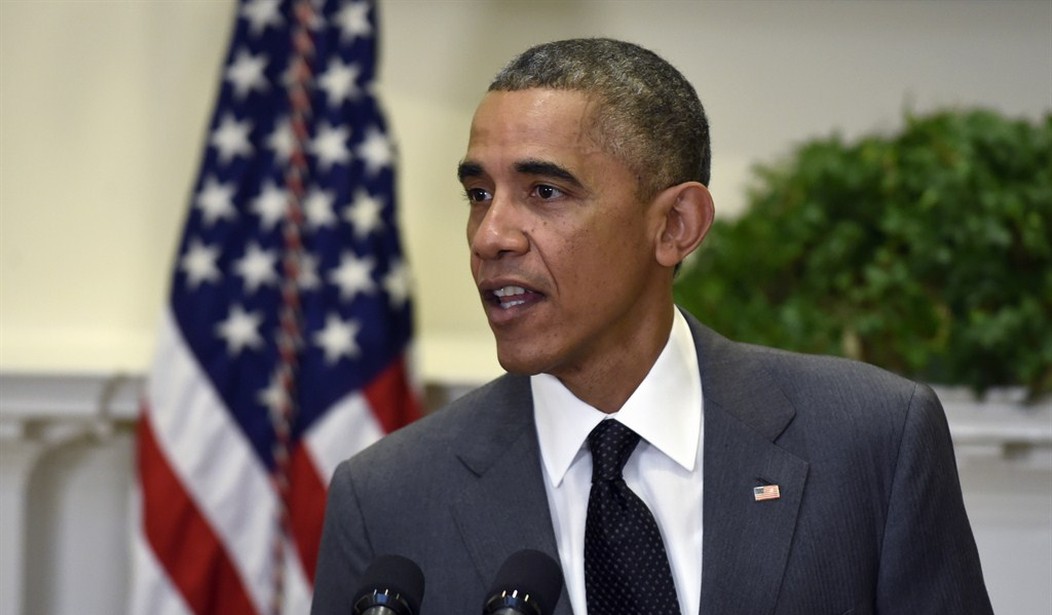President Obama did something extraordinary, perhaps unprecedented, in his news conference immediately after the midterm elections: He claimed a mandate on behalf of voters who didn't vote.
"To everyone who voted, I want you to know that I hear you," the president said. "To the two-thirds of voters who chose not to participate in the process yesterday, I hear you, too."
What did that mean? What did those non-voters say?
It would probably be more useful to ask what the president heard. And apparently Obama heard expressions of support from non-voters across the land.
The president explained that many more voters turned out when he was elected, and then re-elected, than in the midterms that left Republicans firmly in control of the House and Senate. "One of the things that I'm very proud of in 2008 and 2012, when I ran for office, was we got people involved who hadn't been involved before," Obama said. "Part of what I also think we've got to look at is that two-thirds of people who were eligible to vote just didn't vote."
Of course, more than one-third of the people who were eligible to vote in Obama's two presidential elections didn't vote then, either. But Obama's message to Republicans was unmistakable: My mandate is bigger than your mandate.
Certainly presidential-year turnout is larger than midterm turnout; that's the way the system works. But Obama's reaction was born out of failure.
Everyone knew, going into the midterms, that Democrats were desperate to reassemble the vaunted Obama coalition of 2008 and 2012. If that combination of minorities, women and young people came to the midterm polls in the same numbers they did in presidential years, Obama's party would do very well.
Recommended
But that didn't happen -- a result the president does not seem prepared to fully acknowledge. Facing the reality of a huge Republican victory, Obama spoke at his post-defeat news conference as if the voters who supported him in '08 and '12 had made a sort of virtual trip to the polls in 2014, delivering a silent but more powerful message than the one sent by Americans who actually turned out.
Perhaps Obama felt as if he had to read the results that way. After all, a more reality-based look at what happened would have been a humbling experience for a man who in the past has known great success with voters.
Remember that a month before the midterms, Obama declared that his policies "are on the ballot, every single one of them." Then Americans actually cast those ballots, and Obama's party lost decisively. A reasonable interpretation would be that voters broadly rejected the president's policies. So Obama looked for another way to read the results.
Mentally, the president appears stuck in 2012, a year when he won re-election and had a chance to enact a second-term agenda. Back then, he hoped for victories on gun control, immigration and the environment. But he got very little done. Now, having lost big in his second midterms, Obama is trying to remind everyone that he used to be a winner.
The problem is that presidential terms last four years, but presidential mandates don't. George W. Bush won re-election in 2004 and used his victory to try to enact Social Security reform. He failed, and two years later paid for the unpopularity of his policies -- most notably, the Iraq war -- with a huge defeat in the 2006 midterms.
By the time Bush lost Congress, his mandate was gone, and he was reduced to exercising the core constitutional powers of the presidency. Bush would have been laughed out of the room if, in his famous "thumping" post-election news conference of Nov. 8, 2006, he had pointed to his victories in 2000 and 2004 as evidence of some sort of virtual mandate bequeathed by voters who hadn't actually shown up at the midterm polls.
Instead, Bush's acceptance of defeat was a model of reality-based politics. "I'm obviously disappointed with the outcome of the election, and as the head of the Republican Party, I share a large part of the responsibility," Bush said. "Look, this was a close election. If you look at it race by race, it was close. The cumulative effect, however, was not too close. It was a thumping."
Obama didn't come anywhere near that sort of acknowledgment. Several days later, he conceded some responsibility for the results, but if in time he doesn't fully accept what happened in the midterms, the nation could be in for two years of a president living in the past, pointing to a mandate that is long past its sell-by date.

























Join the conversation as a VIP Member